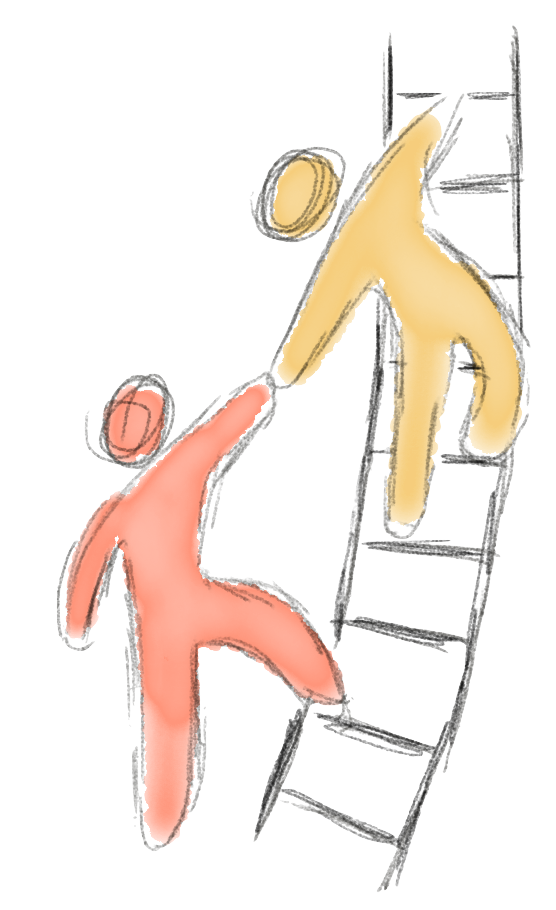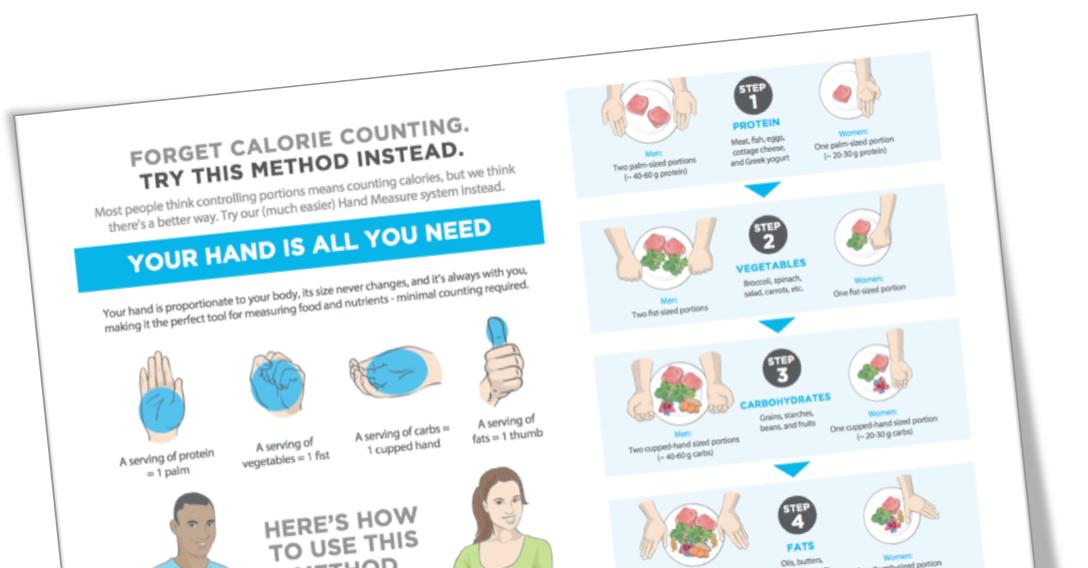The Long-term Game of Permanent Fat Loss
by Kern Kapoor

I have a pet peeve. It is my biggest pet peeve.
It is that of yo-yo dieting.
It is a pet peeve of mine because I had gone through it for 6 years.
And a lot of my clients have also gone through it (some even longer than me).
It is a pet peeve of mine because so many of us are helplessly stuck in this cycle…
1. We have a pain moment.
“The doctor tells us our chronic symptoms are because we are overweight”
Or
“Your mum buys you the largest size jacket in the store for your birthday. And it doesn’t fit”
2. Our motivation levels sky rocket.
Fear drives change. You’ve had enough and you say it’s time for change.
(Note: Marketers exploit this fear factor to unbelievable levels)
3. We take massive action.
Not small, sustainable action. We take MASSIVE action.
We buy new work out clothes. New juicer. New gym membership. Overhaul our diet. We try to do everything at once.
4. We hit a plateau.
This could be a physical plateau.
(i.e. not losing as much weight in your third week of new lifestyle).
Or it could be a mental plateau (i.e. the initial excitement is starting to wane off).
5. We crash and burn.
We’re exhausted both mentally and physically. We decide this is not worth it. We self-sabotage. We end up gaining more weight than we lost.
6. We do this again. And again. And again.
We have a new pain point. We see a new diet plan. We get excited. And we get onto this cycle again.
If you wanted stats to back this up. Here they are:
- 90% of dieters gain all the weight back after one year
- 60% of these dieters gain more weight than they started off

What happens to our bodies?
The physiological processes of our bodies are complex.
When we go on a diet, damage our body’s metabolic system and create hormonal imbalances.
We go into it in more detail in this article: Why Calorie Counting is a Bad Idea.
What happens to our mind?
When we regain weight after our failed attempts, we can directly see the effect on our body shape.
However, the deeper level implications of this is how has it impacts on your psychology.
Failing again and again has a damaging impact on your self-belief, self-confidence and self-image.
Self-belief in particular, goes a long way in determining how you rebound after failure.
Yet, if you keep trying ineffective short-term approaches, your self-belief is likely to take a hit.
Mind you, these psychological impacts happen on a very subtle level.
You won’t directly tell yourself that you are low on confidence and self-belief.
But it will play out in your life in subtle ways:
• All your past attempts have seemed like too much effort. So you might start telling yourself you don’t have enough time/motivation/energy to focus on your health and fitness right now.
• You might put down your friends who are trying to kick start their healthy lifestyle because it makes you feel uncomfortable.
• You are afraid to even take try a new weight loss program because you’ve had bad experiences in the past.
In essence, because your past attempts haven’t been effective, we make a future assumption that we won’t be able to find an effective solution (or that it will be too hard).
Which leads us to not trying at all – which is the ultimate failure.
Playing the long-term game
“Remember to dream big, think long-term, underachieve on a daily basis, and take baby steps. That is the key to long-term success.”
– Robert Kiyosaki
“Most people over-estimate what they can do in one year, and they can underestimate what they can do in ten years.”
– Tony Robbins
Now I’m not saying that it will take you 10 years to reach your dream body.
But as humans, we need to realise that we have a tendency to be short-term thinkers.
And our obsession with instant gratification blinds us from our long-term potential.
Playing the long-term game requires a certain level of skill, patience and persistence.
Here’s the framework that has helped my clients achieve some amazing body transformation results.
Goals to Action
We all know we need to set goals. There’s been a lot of emphasis on goal-setting these days.
They need to be specific, measurable, attainable blah blah blah.
But how many times have our goals lead to consistent, long-term results?
For most people, not really.
That’s because goals aren’t achieved by the mere act of setting them.
Goals are achieved through consistent, purposeful action.
And the formula can really broken down to two things:
1. Break down the goal into specific skills you can practice.
2. Build those skills by taking purposeful action.
So the formula pretty ends up looking like this:
- Practice daily to build skills
- Build skills to achieve goals
Goals -> Skills -> Practices

PS. Note that the action you take MUST be purposeful and strategic. You’ll learn more on how to do this in the rest of the article.
Weight Loss Example
Goals
Let’s say your goal is to lose 10 kgs. That is an outcome goal. First, you need to convert this outcome goal to a process goal.
In order to lose 10 kgs, your process goal may become to: eat better consistently.
But eating better consistently requires we build a certain set of behavioural skills.
Skills
What skills are required to eat better consistently?
Now this is a really important phase of planning. Because sometimes, we don’t know what skills we are actually missing. And it is critical to build the most foundational skills first.
Just like learning how to hit a golf ball, you need to have progressive plan for building skills.
Through our weight loss coaching program, we have identified the most important initial skill as the following: hunger and appetite awareness.
This skill has lead to the biggest return of investment over the long-run. And so we break this skill down to daily practices.
Practices
Our first two practices in the coaching program are to eat slowly (practice #1) and to eat until satisfied, not stuffed (practice #2).
From our client experience, this has been by far the most effective way to build the skill of hunger and appetite awareness skill.
Over two weeks, each practice builds the skill of hunger and appetite awareness.
And this skill sets a major foundation for the rest of the program to help clients – eat better consistently.

How to ensure you stay on track over the long-term
It’s all well and good to have a clear plan of action.
But how are our clients able to stay on track in the face face of life’s ups and downs.
It is really important to have structures and systems in place that you are taking the right action with the right kind of support.
And that is why we have developed the ‘Three S Formula’.
Three S Formula
1. Small
The best practices are small daily actions that can be done in the context of real life. Even when you’re busy. Even when life gets stressful.
When we try to kick start our health and fitness journey, we try to do everything all at once.
We get new workout clothes. We buy a gym membership. We go get a juicer.
We try to overhaul our whole lifestyle altogether and a few weeks later, we crash and burn.
Research has shown that when people try to change a single behaviour at a time, the likelihood that they’ll retain that habit for a year or more is better than 80 percent.
When we try to tackle two behaviours at once, the success rate becomes less than 35 percent.
And for three or more, the success rate plummets to less than 5 percent.

2. Strategic
Great, so you understand the one-habit approach. But how do you know what habits to start off with.
This is where it pays off to be strategic about your planning. If you imagine a bucket with leaking holes, you want to address the biggest holes first.
This is where you’ll get the biggest bang for your buck.
Sometimes, you’ll be able to clearly point out to your biggest leaking holes.
But sometimes, you may need an expert guidance from someone who’s been there, done that.
You can really fast track your results by getting expert advice from someone who can help you strategise your approach for long-term success.

3. Supported
Practices work best when they’re supported by some form of teaching, coaching, mentorship and accountability.
Most people try to approach their health and fitness journey alone and have no support networks to fall back on when things get challenging.
From our experience here are the most important phases that you need support:
Starting out – known as the ‘courage phase’. You need someone to help you set the trajectory of your path and get encouragement when starting out.
Staying on track – having a known cadence of accountability in the form of fortnightly coaching calls has done wonders to keep our clients on track.
When you’re stuck – there will be times throughout your journey when you hit a ‘plateau’. It is important at these times, to get tools and strategies that have helped others overcome similar challenges. It is much easier to navigate a challenging situation when you get advice from someone who has ‘been there, done that.”
Future planning – what’s better than solving a problem? Avoiding that problem in the first place. Experienced coaches can give clients a heads up – in advance – about what they’re likely to come up against. That way the clients know what problems to look out for and they’re less likely to get derailed.

Try the coaching framework on yourself:
1. Pick a goal you’d like to achieve.
2. Now brainstorm the key skills needed to achieve that goal (they don’t have to be perfect – just get your brain working).
3. Think up some practices that may help you build those skills (again, perfection not required).
4. Look at your plan and review it. Do you have the expertise to know whether this is right for you? If not, is there someone who can help you review and revise the plan?
5. When you’re confident with the plan, consider what you’ll do for support and accountability. Who will you check in with? How frequently? What can they help with?
6. Get started. Begin with your first two-week practice.
7. Every month or so, look back at your plan and celebrate how far you’ve come. Share your progress, wins and challenges with your coach.
8. If you get stuck at any time, find help. Don’t try to do it alone. There’s someone out there that can help you overcome your obstacles and re-route your plan.
And remember: this process works for any type of goal.
Give it a try. It has worked for so many of our clients. I’m confident it’ll work for you.
Best wishes,
Kern

The 2-min Meal Plan Cheatsheet.
Learn how to plan your meals without counting calories.


